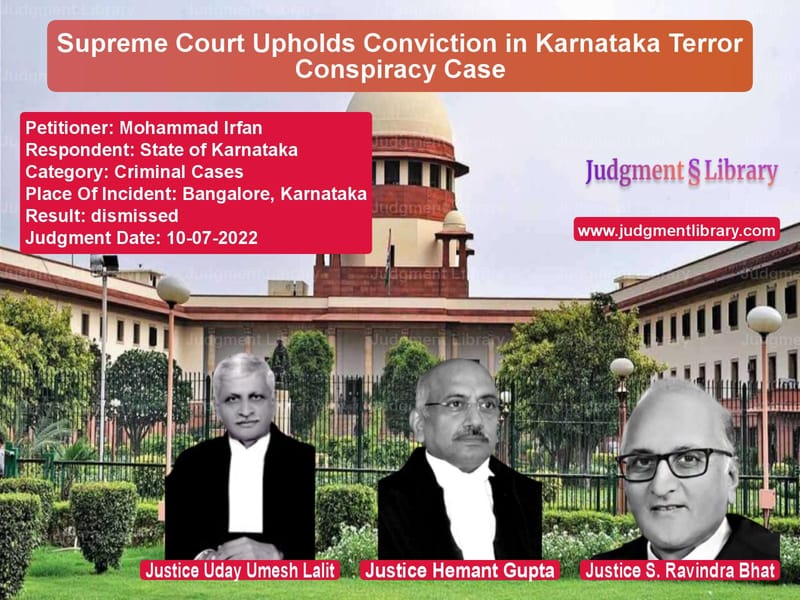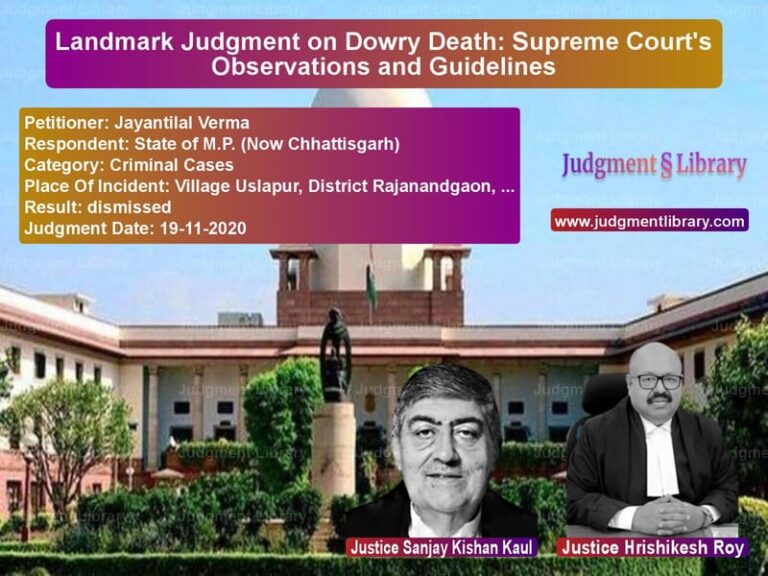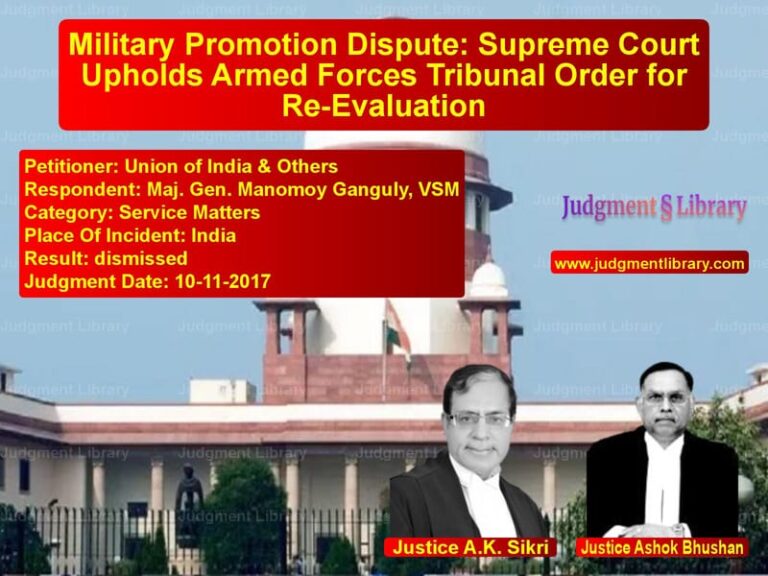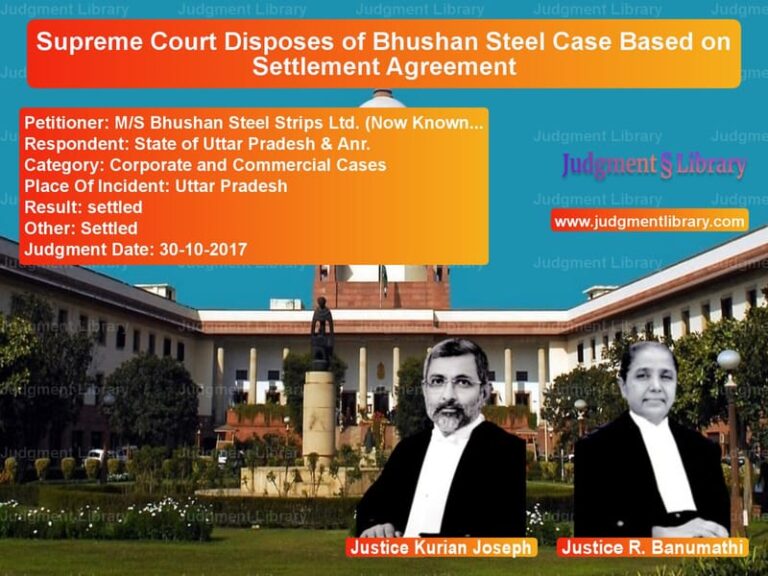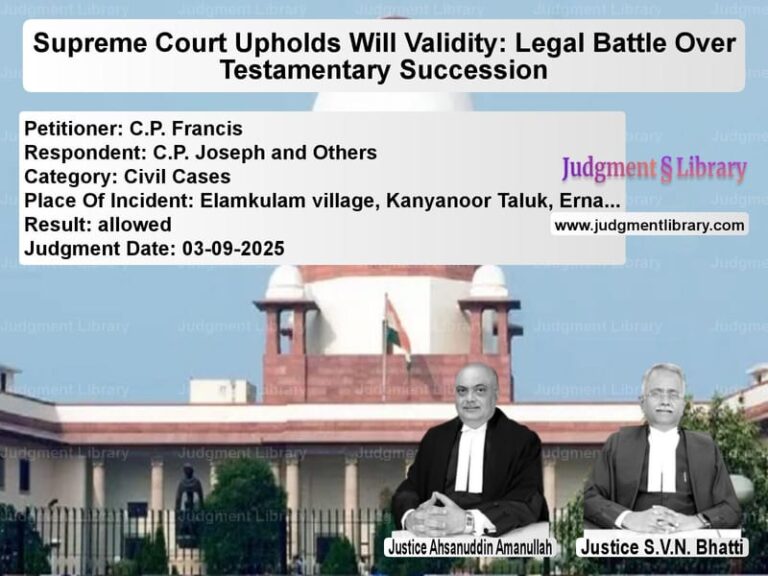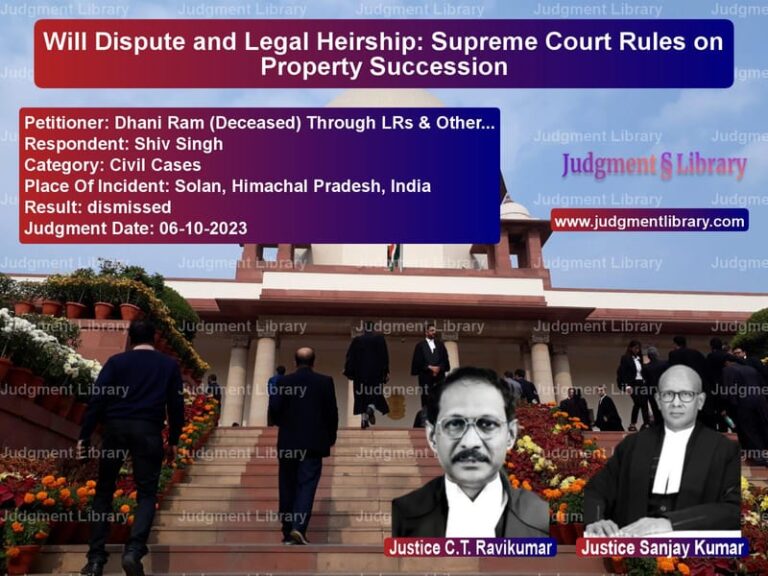Supreme Court Upholds Conviction in Karnataka Terror Conspiracy Case
The Supreme Court of India delivered a significant judgment in the case of Mohammad Irfan v. State of Karnataka, addressing allegations of a terrorist conspiracy linked to the banned organization Lashkar-e-Taiba (LeT). The case involved multiple accused persons convicted for criminal conspiracy, possession of explosives, and plotting attacks against public property and individuals.
The matter originated from a series of arrests and recoveries of arms, explosives, and incriminating literature between 2005 and 2006. The accused were convicted by the trial court, and their sentences were later modified by the High Court of Karnataka. The Supreme Court, in its final ruling, upheld the convictions, emphasizing the gravity of the conspiracy and its potential implications for national security.
Background of the Case
The case stems from a criminal conspiracy linked to terrorist activities in Karnataka. The prosecution alleged that a group of individuals was actively involved in furthering the objectives of Lashkar-e-Taiba (LeT), a banned militant organization. The accused were charged under various sections of the Indian Penal Code (IPC), the Explosive Substances Act, the Arms Act, and the Unlawful Activities (Prevention) Act (UAPA).
Investigations revealed that the accused had procured and stored explosives, weapons, and literature promoting extremist ideology. Key evidence included recoveries made during police raids, voluntary statements of the accused, and witness testimonies, which pointed to a well-organized plot aimed at disrupting public order and inciting violence.
Petitioner’s Arguments
The appellants challenged their convictions on several grounds, arguing:
- The prosecution failed to establish a clear link between them and any direct acts of terrorism.
- Some of the accused had merely attended meetings without participating in any criminal activities.
- The evidence collected, including books and pamphlets, did not conclusively prove an intention to commit violent acts.
- The prosecution’s reliance on hostile witnesses weakened its case.
- The High Court erred in enhancing their sentences from seven years to life imprisonment.
Respondent’s Arguments
The State of Karnataka defended the convictions, arguing:
- The accused were active participants in a criminal conspiracy aimed at waging war against the state.
- Significant recoveries of explosives and firearms proved their intent to carry out attacks.
- Even if certain witnesses turned hostile, other corroborative evidence substantiated the charges.
- The accused had held multiple secret meetings, where they planned subversive activities.
- The High Court correctly enhanced the sentences, considering the seriousness of the offenses.
Supreme Court’s Observations
The Supreme Court conducted a thorough analysis of the evidence and legal principles applicable to the case. The court observed:
- The presence of the accused at meetings where plans were discussed was not incidental but an integral part of the conspiracy.
- The seizure of explosives and arms from certain accused persons confirmed their active participation.
- Documents recovered, including minutes of secret meetings, provided sufficient proof of the conspiracy’s objectives.
- The conspiracy was aimed at overawing the government through criminal force, thereby attracting the provisions of Section 121A of IPC.
- Sanctions required for prosecution under UAPA and other laws were valid and properly obtained.
Final Judgment
After considering all aspects, the Supreme Court ruled:
- The convictions of the accused under Section 121A (conspiracy to wage war against the Government) were upheld.
- The High Court’s decision to enhance the sentences to life imprisonment was justified, given the potential impact of the conspiracy.
- The trial court’s acquittal of one accused (A-7) was affirmed, as no substantial evidence was found against him.
- The accused were ordered to serve their sentences concurrently, with credit given for time already spent in custody.
With this ruling, the Supreme Court reaffirmed its commitment to national security and the rule of law, setting a precedent for handling cases involving terrorist conspiracies.
Petitioner Name: Mohammad Irfan.Respondent Name: State of Karnataka.Judgment By: Justice Uday Umesh Lalit, Justice Hemant Gupta, Justice S. Ravindra Bhat.Place Of Incident: Bangalore, Karnataka.Judgment Date: 10-07-2022.
Don’t miss out on the full details! Download the complete judgment in PDF format below and gain valuable insights instantly!
Download Judgment: mohammad-irfan-vs-state-of-karnataka-supreme-court-of-india-judgment-dated-10-07-2022.pdf
Directly Download Judgment: Directly download this Judgment
See all petitions in Terrorist Activities
See all petitions in Criminal Conspiracy
See all petitions in Bail and Anticipatory Bail
See all petitions in Judgment by Uday Umesh Lalit
See all petitions in Judgment by Hemant Gupta
See all petitions in Judgment by S Ravindra Bhat
See all petitions in dismissed
See all petitions in supreme court of India judgments July 2022
See all petitions in 2022 judgments
See all posts in Criminal Cases Category
See all allowed petitions in Criminal Cases Category
See all Dismissed petitions in Criminal Cases Category
See all partially allowed petitions in Criminal Cases Category

